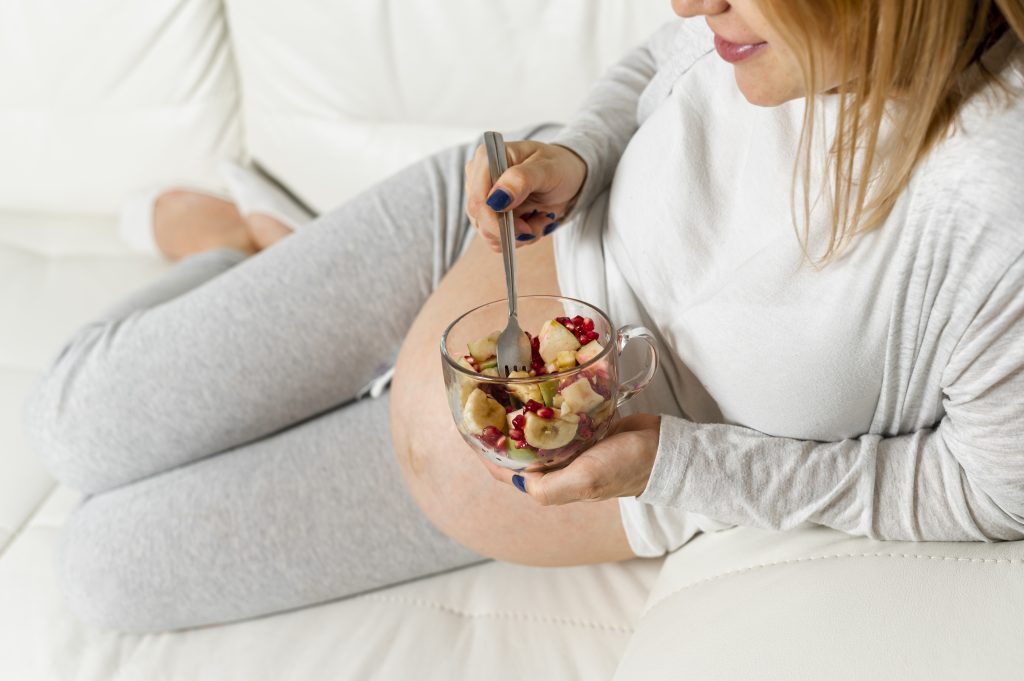Parenting
Nourishing Two: A Comprehensive Guide on What to Eat During Pregnancy
Pregnancy is a remarkable journey filled with profound changes, and one of the most significant changes is the increased importance of nutrition. What you eat during pregnancy plays a crucial role in your baby’s growth and development. In this comprehensive guide, we’ll explore the essential nutrients, dietary recommendations, and healthy eating habits to ensure you and your baby are nourished and thriving throughout this extraordinary period.
1. Foundations of a Healthy Pregnancy Diet:
A balanced diet during pregnancy should include:
- Proteins: Lean meats, poultry, fish, eggs, dairy products, beans, and legumes provide essential amino acids for fetal growth.
- Fruits and Vegetables: These are rich sources of vitamins, minerals, fiber, and antioxidants. Aim for a colorful variety to maximize nutrition.
- Whole Grains: Whole-grain bread, rice, pasta, and cereals offer essential carbohydrates and fiber for energy and digestion.
- Dairy: Milk, yogurt, and cheese provide calcium and protein for both you and your baby’s developing bones.
- Healthy Fats: Avocado, nuts, seeds, and olive oil supply healthy fats necessary for brain and organ development.

2. Essential Nutrients:
- Folate (Folic Acid): Critical for neural tube development, found in leafy greens, beans, fortified cereals, and supplements.
- Iron: Necessary for red blood cell production, found in lean meats, poultry, beans, and iron-fortified foods.
- Calcium: Vital for bone and teeth development, found in dairy, fortified plant-based milk, and leafy greens.
- Omega-3 Fatty Acids: Essential for brain and eye development, found in fatty fish like salmon, chia seeds, and walnuts.
- Iodine: Important for thyroid function and brain development, found in iodized salt and seafood.
- Protein: Critical for tissue growth and repair, found in lean meats, poultry, fish, and plant-based sources like beans and tofu.
- Vitamin D: Essential for calcium absorption, found in sunlight, fortified foods, and supplements.
- Vitamin C: Aids in iron absorption, found in citrus fruits, strawberries, and bell peppers.
- Fiber: Promotes regular bowel movements and reduces constipation, found in whole grains, fruits, and vegetables.
3. Hydration:
Staying well-hydrated is crucial during pregnancy. Water helps transport nutrients to your baby, supports the expansion of blood volume, and aids in digestion. Aim for at least 8-10 cups of water daily, and adjust for hot weather or increased physical activity.
4. Foods to Limit or Avoid:
- Caffeine: Limit caffeine intake to no more than 200 mg per day, equivalent to one 12-ounce cup of coffee.
- High-Mercury Fish: Limit consumption of high-mercury fish like shark, swordfish, king mackerel, and tilefish.
- Unpasteurized Dairy and Raw Seafood: Avoid these to reduce the risk of foodborne illnesses.
- Alcohol and Tobacco: Completely avoid alcohol and tobacco products during pregnancy.

5. Eating Habits:
- Frequent, Small Meals: Eating small, balanced meals throughout the day can help manage nausea and maintain energy levels.
- Listen to Your Body: Pay attention to hunger and fullness cues. Eat when hungry, and stop when satisfied.
- Food Safety: Practice good food safety by washing fruits and vegetables thoroughly, cooking meat and eggs thoroughly, and avoiding unpasteurized products.
Conclusion:
A well-balanced and nutritious diet during pregnancy is fundamental to your baby’s health and development. Focus on a variety of foods rich in essential nutrients, stay well-hydrated, and make healthy eating habits a priority. Don’t hesitate to consult with a healthcare provider or a registered dietitian for personalized guidance to ensure you and your baby receive the best possible nutrition throughout this incredible journey of pregnancy.

